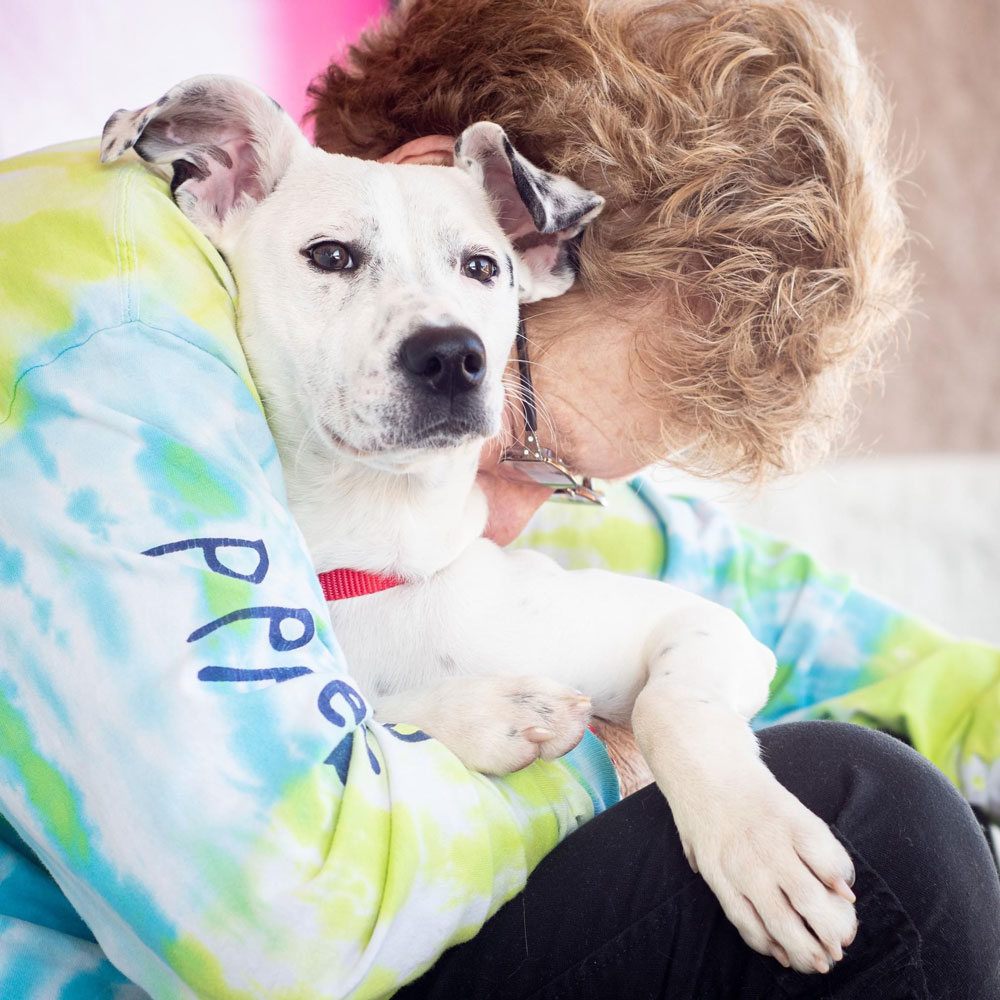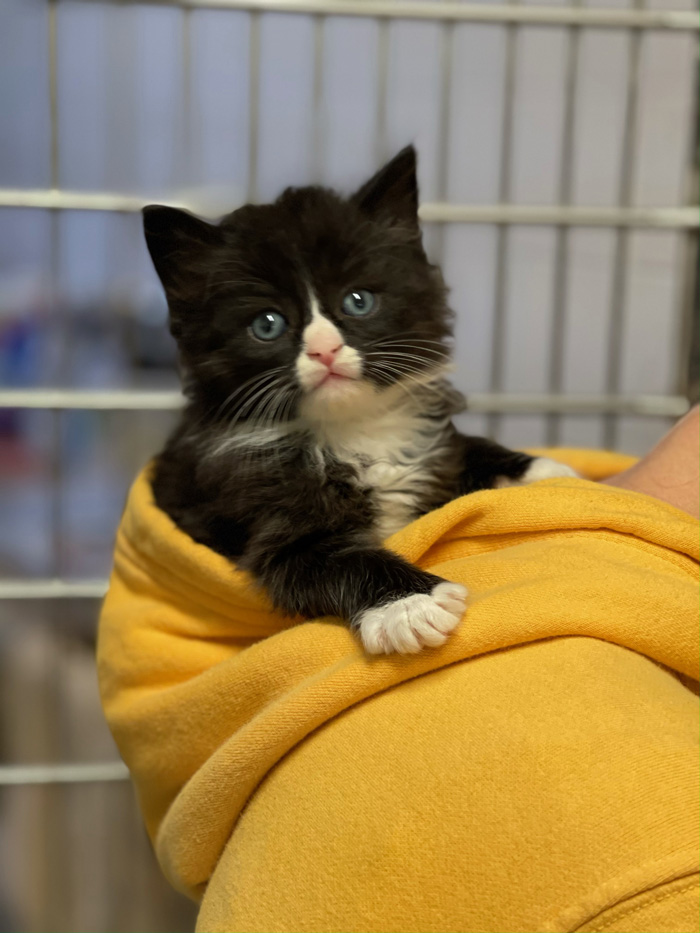Adoptions
How to adopt dogs and cats from Southside SPCA
Our Adoption Process
We believe that every animal in our care is capable of thriving in the right home and family. Our adoption process is designed to match pets with the best environment possible and match adopters with the animal that best fits their specific needs. Adoptions are held at our shelter in Meherrin, Virginia, or at our PetSmart Adoption stand in Chesterfield, Virginia.
- Submit an application.
- Once approved, you will be contacted by an Adoption’s team member who will schedule an appointment at our Shelter or our PetSmart Adoption Stand.
- Pay the adoption fee.
- Sign the animal adoption contract.
- Enjoy life with your new furry friend!
Shelter Appointments
A completed adoption application is required to schedule an appointment at our shelter. To schedule the appointment, submit an adoption application using the button below. We strongly recommend that all family members in your household attend the shelter appointment to best assess an animal’s compatibility.
Shelter appointments include:
- One-on-one time with the animals
- Adoption facilitation from our staff

PetSmart Adoption Stand
Our PetSmart Adoption Stand is located in the North Chesterfield PetSmart at 1276 CarMia Way, North Chesterfield, VA 23235.
The stand is open seven days a week during store hours for cat adoptions and on Saturdays from 10 a.m. to 1 p.m. for dog adoptions. Those interested in adopting an animal may visit the adoption stand at the designated times. A completed adoption application is required for PetSmart Adoption Stand adoptions and can be filled out at the store.
Southside SPCA adoption counselors are typically available during adoption stand hours. During your visit to the PetSmart Adoption Stand, a member of the Southside SPCA Pet Adoptions Team will assist you in finding the right animal for your home. Once approved, an SPCA team member will finalize the adoption. Submit an application to be pre-approved prior to visiting the adoption stand.
PetSmart Adoption Stand Cat Adoptions
- Open during PetSmart store hours
- Adoption application required
PetSmart Adoption Stand Dog Adoptions
- Saturdays (10 a.m. to 1 p.m.)
- Adoption application required
Dog Adoption Fees
Dog Adoption Fees range from $200 to $250
Fee Includes:
- Immunizations
- Spay/Neuter
- Deworming
- Flea/Tick Prevention
- Testing for Heartworms and Tick Borne Diseases
- Martingale Safety Collar
Cat Adoption Fees
Adult Cats and Kittens: $75
Fee Includes:
- Immunizations
- Spay/Neuter
- Deworming
- Testing for FIV/FeIV

Frequently Asked Questions
Can I take this pet home on a trial basis?
We do not offer a “foster-to-adopt” program or a trial period. We encourage people to spend as much time as needed with a pet before deciding. We want to ensure that the adoption is a good match for your family. Our adoption counselors are available to help you find the right fit!
Why do I need an appointment at the shelter?
We want to ensure that both pet and adopter have a positive and enjoyable adoption experience. By scheduling an appointment, an adoption counselor can be available to assist you from start to finish. Our adoption cottage, located in a grassy field tucked along the tree line, offers a private and quiet spot for you and your family to meet a new friend.
What can you tell me about a pet's past?
We make it a priority to rescue dogs and cats from animal controls that might not otherwise have a chance. Most are strays with little to no background information available. Adopters should assume that their adopted pets will need time to acclimate to a new home. Positive reinforcement obedience and crate training for dogs is recommended. Our adoption counselors are happy to offer tips and strategies to help!
When will I hear back from someone once an application is submitted?
Generally, you can expect to hear from an adoption counselor within 48 hours if we are able to obtain a satisfactory vet reference. If you haven’t heard from an adoption counselor, please check the website to see if the pet you are interested in is still available. Applying for a specific dog or cat means you will only be contacted if that pet is still available. We do not hold and will adopt to the first approved applicant deemed appropriate for a particular pet. Check our website often as it is updated daily!
Can I adopt a pet for someone else/as a gift?
The person who will be financially responsible and provide care for the pet should be the one to sign the contract and adopt. We do allow pets to be adopted as gifts for dependent children living in the same house if all adults in the household are in agreement.


